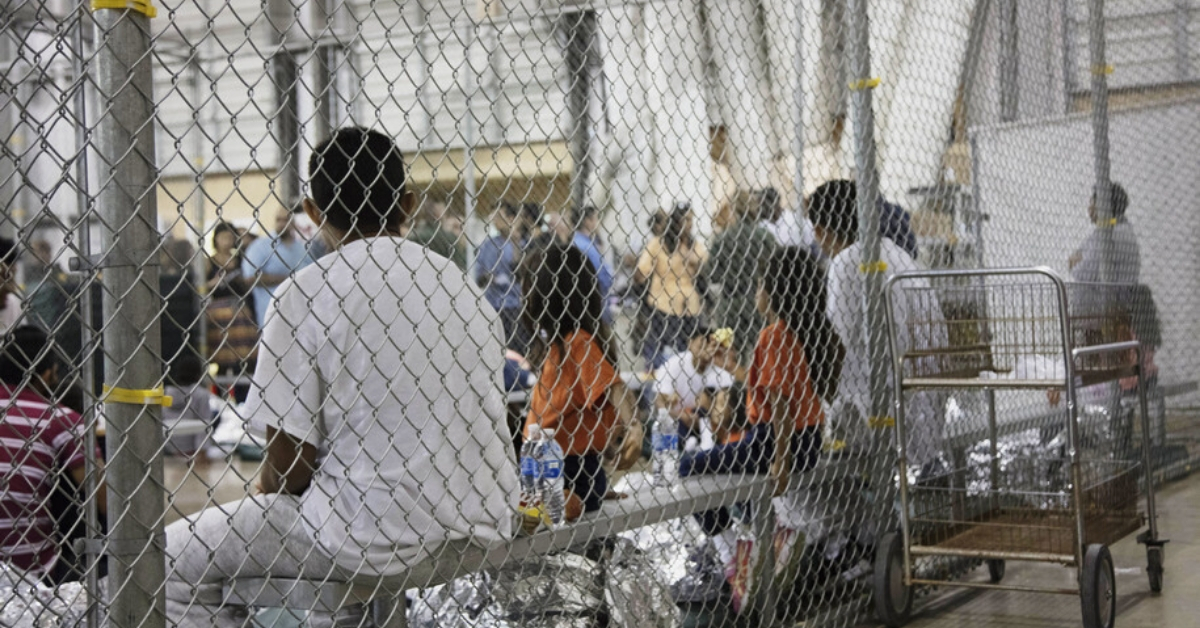
Columban missionaries have been accompanying communities along the US/MX border for over 25 years. Every day we see how border communities are models of hospitality and creative cross-cultural encounter.
But we also see how inhumane immigration enforcement and extreme militarization sow fear, distrust, and trauma in our communities.
While every presidential administration over the past forty years has employed an enforcement-heavy approach to border policy, Trump’s administration has expanded and intensified it. This strategy has had brutal consequences for our migrant sisters and brothers, including deep psychology trauma and death.
As the President’s first term comes to a close, we want to review four of his major border policies: construction of a border wall, family separation, restricting access to asylum, and extreme militarization.
In this article, we will look at zero tolerance and family separation.
In April 2018, then-Attorney General Jeff Sessions announced that Trump's administration would criminally prosecute 100% of people crossing the border between ports of entry as part of a “zero tolerance” approach to immigration enforcement. This had not been common practice up until that point.
According to the policy, when a family arrived at the border together, the parents were referred for criminal prosecution and placed in an adult detention center. This meant that their children were rendered “unaccompanied” and turned over to the Department of Health and Human Services' Office of Refugee Resettlement.
In June 2018, it became clear that the policy did not include a procedure for reuniting the families it separated and intense public outcry compelled the President to issue an executive order on June 26 ending the policy.
However, the executive order did not end all forms of family separation or address how the government would reunify families. Instead, it replaced family separation with family detention.
After the administration formally ended the policy, investigations by journalists and Congress revealed new information:
Because Trump's administration separated families without compiling adequate documentation to track them, it is not clear how many children this policy affected. Estimates suggest that the administration separated over 5,000 children from their families.
By April 2019, administration officials admitted that it could take up to two years to identify the children who had been separated and reunite them with their families. At that time, about 2,800 children had been returned to their families.
The impacts of family separation on children are severe and life-long. Children can suffer from PTSD, anxiety, depression, and other mental illness as well as poor academic performance. This op-ed written by children’s service provider describes the impacts of family separation on children.
Parents suffer from psychological trauma too. In the summer of 2018, a migrant mother reached out to the Columban Mission Center in El Paso, TX after being separated from her son. Columban Fr. Bob Mosher provided spiritual care and emotional support through her ordeal. You can read more about her story here.
As people of faith, we believe that the family is sacred. We must support and strengthen families, not undermine them.
In a statement released shortly after then-Attorney General Sessions announced the “Zero Tolerance” policy, the Most Reverend Joe S. Vásquez, Bishop of Austin and Chairman of the U.S. Conference of Catholic Bishops' (USCCB) Committee on Migration, issued the following statement in response:
"Family unity is a cornerstone of our American immigration system and a foundational element of Catholic teaching. 'Children are a gift from the Lord, the fruit of the womb, a reward.' (Psalm 127:3) Children are not instruments of deterrence but a blessing from God."
As Catholics and members of border communities, Columbans consider it a blessing and an opportunity to serve and support those coming to the United States seeking a better life. We believe our federal policy should reflect the same welcome and respect that border communities themselves show, and abstain from any punitive treatment of human beings, who are made in the image of our Creator.
To that end, we believe that the government should end criminal prosecution of migration-related offenses, and that we should never indefinitely incarcerate children or needlessly separate them from a parent or guardian.
Our government should prioritize non-restrictive, community-based alternatives to detention and case management programs, which support court appearance and compliance. For example, the Department of Homeland Security should fully restore the Family Case Management Program (FCMP), which helps families navigate the legal system outside of restrictive custody. Currently programs like this do not receive the funding required to operate.
*Editor's Note: Download our Border Solidarity Toolkit for a curated list of resources and activities that will help you learn more about US/MX border communities and how you can support them through prayer, education, and action.
Copyright © 2025 Columban Center for Advocacy and Outreach, Washington, D.C.